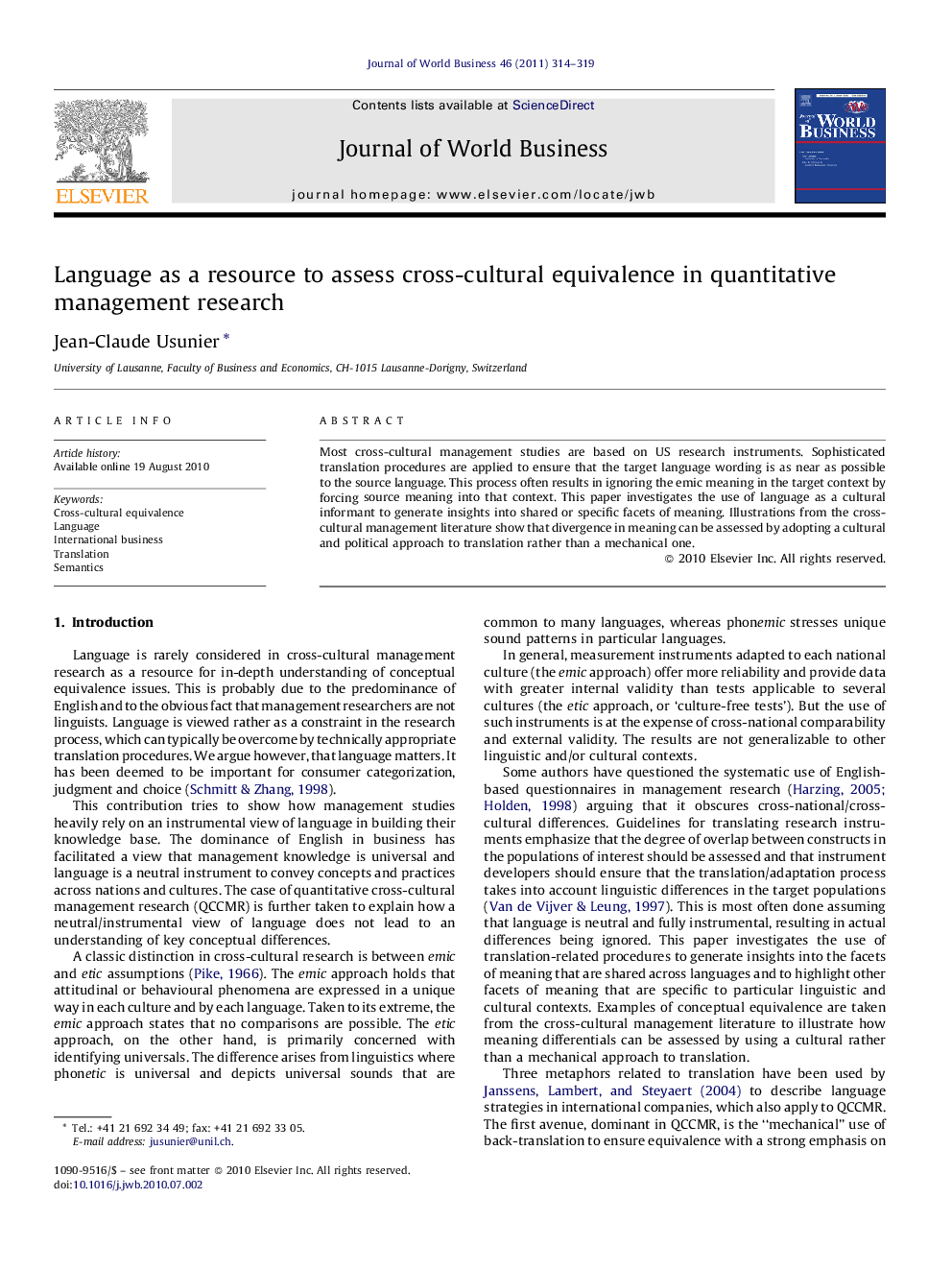| Article ID | Journal | Published Year | Pages | File Type |
|---|---|---|---|---|
| 1002228 | Journal of World Business | 2011 | 6 Pages |
Abstract
Most cross-cultural management studies are based on US research instruments. Sophisticated translation procedures are applied to ensure that the target language wording is as near as possible to the source language. This process often results in ignoring the emic meaning in the target context by forcing source meaning into that context. This paper investigates the use of language as a cultural informant to generate insights into shared or specific facets of meaning. Illustrations from the cross-cultural management literature show that divergence in meaning can be assessed by adopting a cultural and political approach to translation rather than a mechanical one.
Related Topics
Social Sciences and Humanities
Business, Management and Accounting
Business and International Management
Authors
Jean-Claude Usunier,
